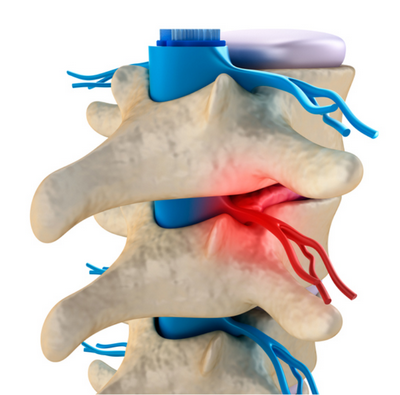What Are the Top Causes of Spinal Compression?
 What is Spinal Compression?
What is Spinal Compression?
First, let’s define what we mean by spinal compression. This refers to a condition where pressure is applied to the spinal cord or the nerves running through the spinal column. And, since the spinal cord is a crucial pathway for sending signals between the brain and the rest of the body, any compression can lead to a range of symptoms.
Spinal Compression Symptoms
- Pain: This can be localized in the back or neck, or it may radiate to other areas, such as the arms or legs.
- Numbness or tingling: These sensations often occur in the extremities.
- Weakness: Muscle strength can be diminished in the affected areas.
- Difficulty with coordination: In severe cases, spinal compression can affect balance and coordination.
- Loss of bladder or bowel control: In extreme cases, spinal compression can lead to incontinence.
Spinal Compression Causes
The most common causes include:
- Degenerative Disc Disease: As people age, the intervertebral discs can degenerate, leading to a reduction in cushioning between the vertebrae and an increased risk of compression.
- Osteoarthritis: This is a joint disease that can affect the spine, leading to the formation of bone spurs that can compress spinal nerves.
- Herniated Discs: When a disc is damaged, it may bulge or break open, pressing on the spinal nerves.
- Spinal Stenosis: This condition involves the narrowing of spaces within the spine, which can compress the spinal cord and nerves.
- Trauma or Injury: Accidents or falls can lead to fractures or dislocations of the vertebrae, causing compression.
- Tumors: Abnormal growths within or near the spinal cord can exert pressure on the spinal nerves or spinal cord.
- Scoliosis or other Spinal Deformities: Abnormal curvature of the spine can lead to uneven pressure on the spinal column and nerves.
- Poor Posture or Overuse: Chronic poor posture or overuse, especially in occupational or sports activities, can lead to spinal compression over time.
Each of these causes can have different symptoms and require different treatments, so it’s important to consult with a healthcare professional for an accurate diagnosis and appropriate management plan. If you are experiencing any symptoms, make an appointment today.
